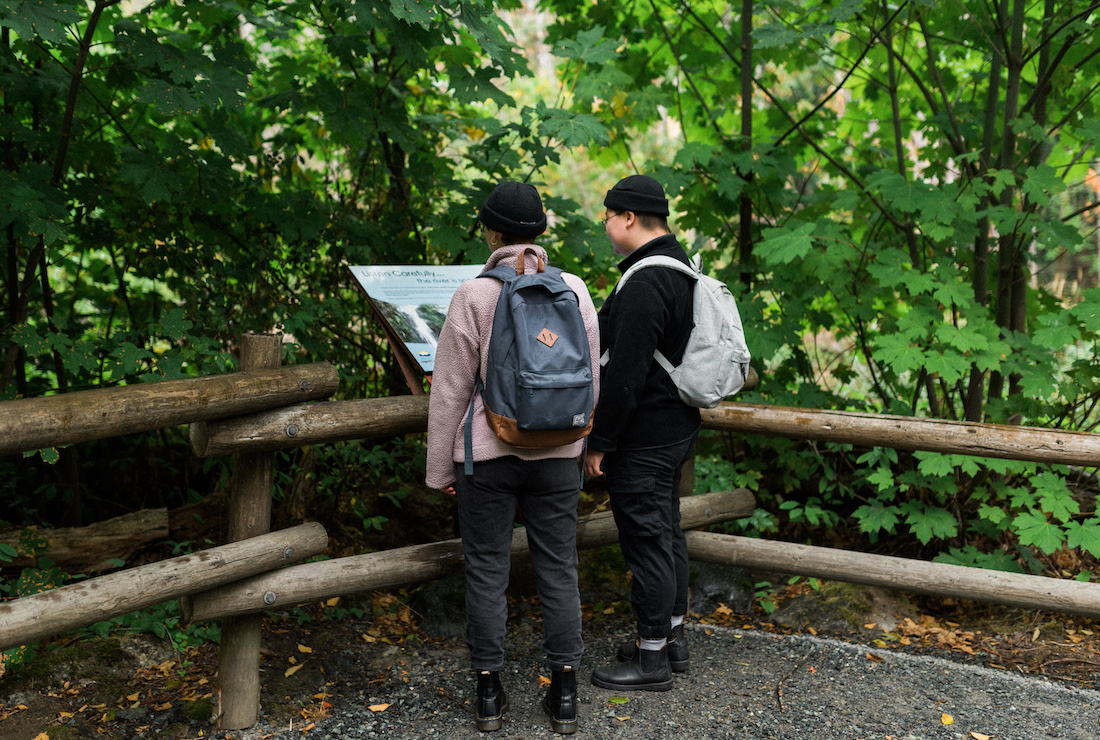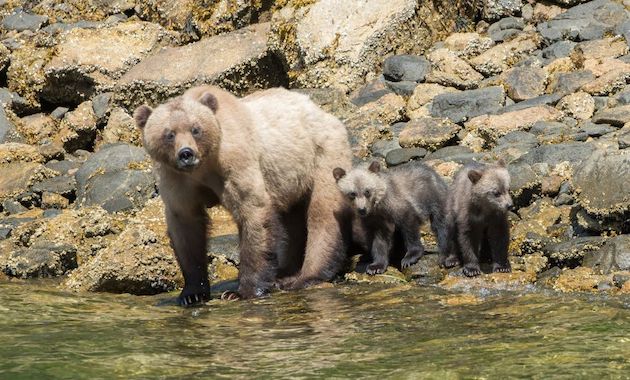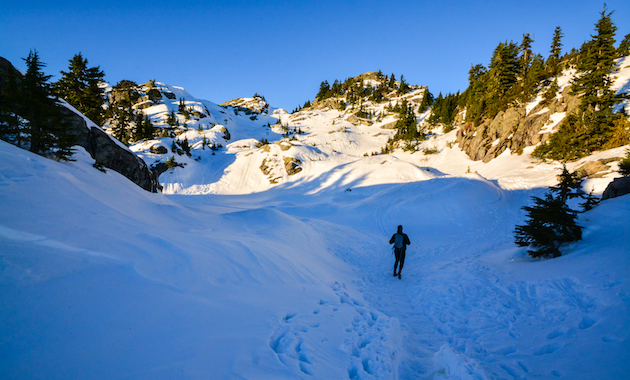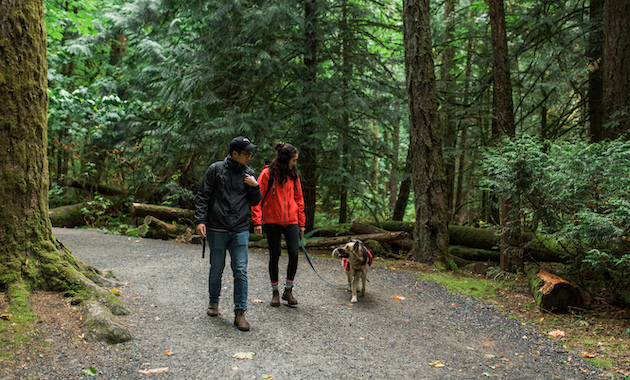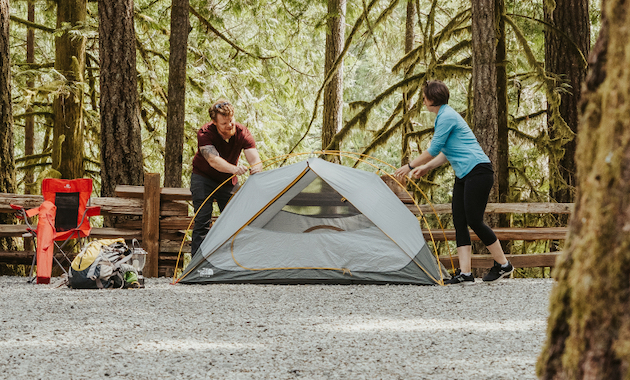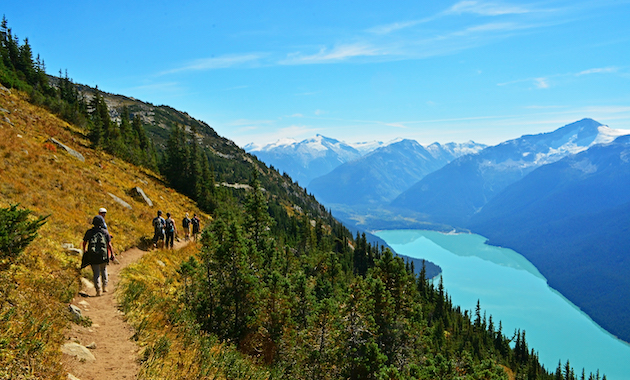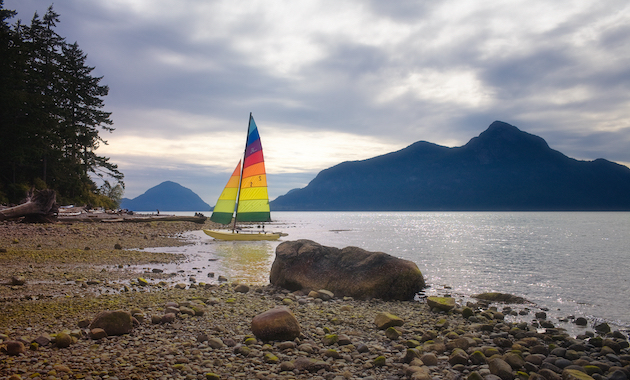British Columbia’s natural spaces offer adventures for everyone, from families with children to skilled mountaineers. Whether you’re camping in the frontcountry or heading out on a multi-day wilderness expedition, safety must be your top priority.
This page provides essential information on staying safe in BC Parks. Whatever your plans, we can help you be prepared. Follow these guidelines to keep yourself, your family, and other park visitors as safe as possible.
Look on this page for information about:
- Planning and preparing for a safe adventure
- Preventing dangerous wildlife encounters
- Staying safe in wintery conditions
- Avoiding health risks
We ask all visitors to help us protect the environment, prevent wildfires, and preserve the cultural values of B.C.’s outdoor spaces. For information on how you can help, see the responsible recreation page.
Trip planning
Planning is an essential part of any safe and successful outdoor adventure. Whether hiking a frontcountry trail or camping in the backcountry, you should always be prepared and know what to expect.
Check for updates
Before setting out, use our find a park tool to check the park's webpage. Look for updates on situations that might impact your plans or create risks. Check advisories for closures, hazardous trail conditions, and weather warnings.
Make a trip plan
Ensure someone knows which park you’re visiting in case you do not return as expected. Make a detailed plan with the AdventureSmart app, especially if you are taking a backcountry trip. Leave a copy of your plan with someone you trust.
Pack the essentials
The following items are worth taking on any visit to a BC Park:
- Navigation aids (maps, compass, GPS)
- Extra food, water, and clothing
- Pocketknife
- First aid kit
- Sunscreen
- Whistle or similar signalling device
- Flashlight and spare batteries
- Emergency shelter
- Fire-making kit
- Satellite communication device
While your cell phone can be useful, do not rely on your phone. Many areas in BC Parks do not have reception.
Animal encounters
BC Parks provide many opportunities for wildlife spotting. However, bears, cougars, wolves, and other potentially dangerous animals may be present. This section provides a quick overview of how to stay safe in wildlife areas.
For more details on how to avoid dangerous animal encounters, including advice on specific animals, see the wildlife safety page.
Wildlife safety for campers
It is extremely important to avoid attracting wild animals to campgrounds. Keep food, food waste, and anything else with a scent in a vehicle, hard-sided trailer, bear-proof canister, or hang. Dispose of garbage in designated receptacles or pack it out with food waste.
For more information on keeping campgrounds safe for everybody, see the camping and day-use guide page.
Wildlife safety for hikers
To avoid meeting wild animals on a trail, hike in areas with low wildlife activity. Make your trip between breakfast and dinner when animals are least active. Make sure animals know you are approaching, to avoid any surprise encounters.
For more details on how to avoid dangerous animal encounters, including advice on specific animals, see the wildlife safety page.
Winter weather
For more details on staying safe in BC Parks during winter weather, visit the winter safety page.
During the winter, you should be especially cautious. Winter weather can cause extreme cold, icy trails, avalanches, and hazardous driving conditions. This section provides basic information on staying safe in winter weather.
Preparing for winter weather
Before any visit during winter weather, ensure you have the additional equipment or training you may need. Tell someone where you are going and when you plan to return. Check Avalanche Canada and Drive BC for the latest conditions.
For more information on preparing for a safe adventure, see the trip planning section, above.
Staying safe in winter weather
During your visit, closely monitor changes in weather conditions. Bring navigation aids, stay on marked trails, and be extra careful not to lose your way in the snow. Watch for signs of hypothermia, such as pale skin and numbness.
For more details on staying safe in BC Parks during winter weather, visit the winter safety page.
Health risks
If you are planning to swim or visit a wildlife area, you may be at risk of contracting an illness. Follow the links below to get HealthLink BC advice that will help you minimize the risk of becoming ill.
Swimming-related health risks
- Blue-green algae is as an odorous, soup-like bloom on the water surface. Ensure children, who may not be deterred by the smell, do not drink or bathe in water containing these bacteria.
- ‘Beaver fever’ (giardia) is a gastric illness that can be contracted by accidentally swallowing contaminated water when swimming. Avoid swimming in water that may be contaminated by animal or human waste.
- ‘Swimmer’s itch’ is caused by an allergic reaction to a parasite. When swimming, avoid areas with weeds and plants, where parasites are more common. Always dry yourself immediately after swimming.
Wildlife-related health risks
- Rabies is a potentially fatal disease transmitted by animal bites, which must be treated very quickly. In BC, it is usually contracted from bats, so areas with high levels of bat activity should generally be avoided.
- HPS is a severe but rare flu-like illness spread by mice. Campers have been exposed to HPS when staying near deer mouse habitats. Always check cabins, shelters, and campsites for mouse droppings and burrows.
Insect-related health risks
- Lyme Disease is an infection spread by ticks, which can lead to serious symptoms if untreated. Tick bites can be avoided by staying covered up when in wooded or grassy areas. Some insect repellents may also help.
- West Nile Virus is a disease spread by mosquito bites. Only a minority of infected people develop symptoms, which tend to be moderate. Protective clothing and mosquito repellent can protect you against bites.
